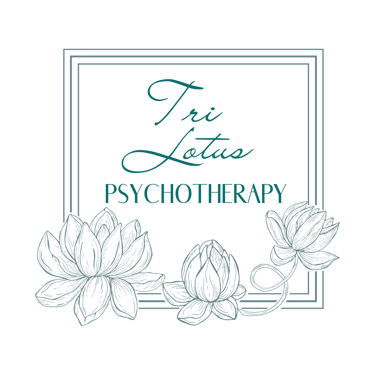NOW ACCEPTING NEW CLIENTS: In-Person in Calgary & Online across Alberta Book a Free 20min Introductory Call! CLIENT LOGIN
The Stories Our Mind Tells Us (And How To Find Relief From Anxiety)
The stories that our mind tells us can have a significant impact on our mental well-being, particularly when it comes to anxiety. In this blog post, we'll explore the power of these stories, how they can contribute to our anxiety, and what we can do to find relief.
ANXIETY RELIEFCOPING SKILLS
Kaylee Procter
4/24/2024


The Stories Our Mind Tells Us (And How To Find Relief From Anxiety)
Have you ever noticed how your mind can take a simple situation and turn it into a full-blown catastrophe? It's as if our thoughts have a life of their own, spinning tales that may or may not be true. These stories that our mind tells us can have a significant impact on our mental well-being, particularly when it comes to anxiety. In this blog post, we'll explore the power of these stories and how they can contribute to our anxiety.
The Power of Our Mind's Stories
Our minds are incredible storytellers. They constantly create narratives about the world around us, shaping our perceptions and influencing our emotions. These stories are often based on our past experiences, beliefs, and fears. They can be helpful in making sense of the world, but they can also lead us astray.
Brené Brown, known for her work on vulnerability, empathy and shame, emphasizes the importance of recognizing the stories we tell ourselves. She suggests that becoming aware of these stories is the first step in shifting them and finding a more accurate and compassionate perspective.
Another influential person in the mental health field, Dr. Kristin Neff, focuses on self-compassion and its role in managing anxiety. Neff suggests that when we believe the stories our mind tells us without question, we can easily fall into self-criticism and judgment. By practicing self-compassion, we can acknowledge that these stories exist and cultivate a more balanced and kinder inner dialogue.
The Impact of False Stories on Anxiety
One of the reasons these stories contribute to anxiety is that they often involve worst-case scenarios or negative interpretations of events. Our minds have a natural bias towards negativity, as it served an evolutionary purpose in keeping us safe from potential threats. This means that our anxiety is actually present to keep us safe, even though it may not seem like it in the moment. However, in the modern world, this negativity bias can lead to unnecessary worry and anxiety.
For example, let's say you're waiting for a friend who is running late. Your mind might start telling you stories about how they must have forgotten about your meeting, or that they don't value your friendship. These stories can quickly escalate your anxiety levels, even though the reality might be something as simple as traffic or a last-minute emergency.
These false stories can create a cycle of rumination and overthinking. Once our mind latches onto a particular story, it can become difficult to let go. We replay the scenario over and over again, analyzing every detail and imagining all the ways it could go wrong. This rumination only serves to intensify our anxiety and prevent us from finding a sense of calm.
Acknowledging and Letting Go Of Our Mind's Stories
So, how can we break free from the grip of these false stories and reduce our anxiety?
Recognize the stories: The first step is to become aware of the stories our mind tells us. Pay attention to the thoughts and narratives that arise in different situations. By recognizing these stories, we can start to question their validity.
Investigate the evidence: Once we've identified a particular story, you can examine the evidence supporting it. Are there any facts or logical reasons to believe this story? Often, we'll find that our mind has exaggerated or distorted the situation.
Consider alternative perspectives: Challenge the story by considering alternative interpretations. Is there another way to view the situation that is more balanced or compassionate? This step can help us gain a broader perspective and reduce anxiety.
Don't spend too much time on investigating and challenging: Leaning into investigating or challenging your stories can also feed into rumination or overthinking. Briefly consider that your mind may be telling you stories, thank your mind for just trying to keep you safe, and then redirect your attention to the present moment (see below).
Cultivate self-compassion: Instead of berating ourselves for buying into these false stories, practice self-compassion. Treat yourself with kindness and understanding, acknowledging that everyone's mind creates stories that may not always be accurate. For more tips on how to do this, click here.
Focus on the present moment: Anxiety often arises when we project our stories into the future. Bring your attention back to the present moment by practicing mindfulness or engaging in activities that ground you. For tips on how to do this, click here.
Our minds have an incredible ability to create stories, but we must remember that they are just that - stories. By recognizing the power of these narratives and challenging their validity, we can reduce the anxiety they contribute to. Researchers like Brené Brown and Kristin Neff remind us of the importance of self-compassion and cultivating alternative perspectives. So the next time your mind starts spinning tales, take a step back, acknowledge the story, choose a more compassionate and accurate narrative, and ground yourself into the present moment.
If this is something that you struggle with, psychotherapy can be immensely helpful. Sometimes we need an outside perspective to help us notice, acknowledge, and shift these stories. Reach out below to book a complimentary introductory call with a Calgary Psychologist to see how Tri Lotus Psychotherapy can help.
For more information on Brené Brown and her work, click here.
For more information on Dr. Kristin Neff and her work, click here.
Let's Connect
Please fill out the form to request an initial appointment
or complimentary introductory call
Contact
hello@trilotustherapy.com
Clinic Hours
Monday: 5:00pm to 8:00pm
Tuesday: 1:00pm to 8:00pm
Wednesday: 8:00am to 8:00pm
Thursday: 8:00am to 8:00pm
Friday: 11:30am to 4:30pm
Saturday: 9:00am to 3:00pm
Copyright © 2025 by Tri Lotus Psychotherapy - All Rights Reserved


Land Acknowledgment: I gratefully acknowledge and honour that where I live, work and play is within the traditional territories of the people of the Treaty 7 region in Southern Alberta, which includes the Blackfoot Confederacy (comprising the Siksika, Piikani, and Kainai First Nations) as well as the Tsuut’ina First Nation, and the Stoney Nakoda (including the Chiniki, Bearspaw, and Wesley First Nations); and Métis Nation of Alberta, Region 3. The traditional Blackfoot name of this place is “Mohkinstsis”, which is also known now as Calgary.

